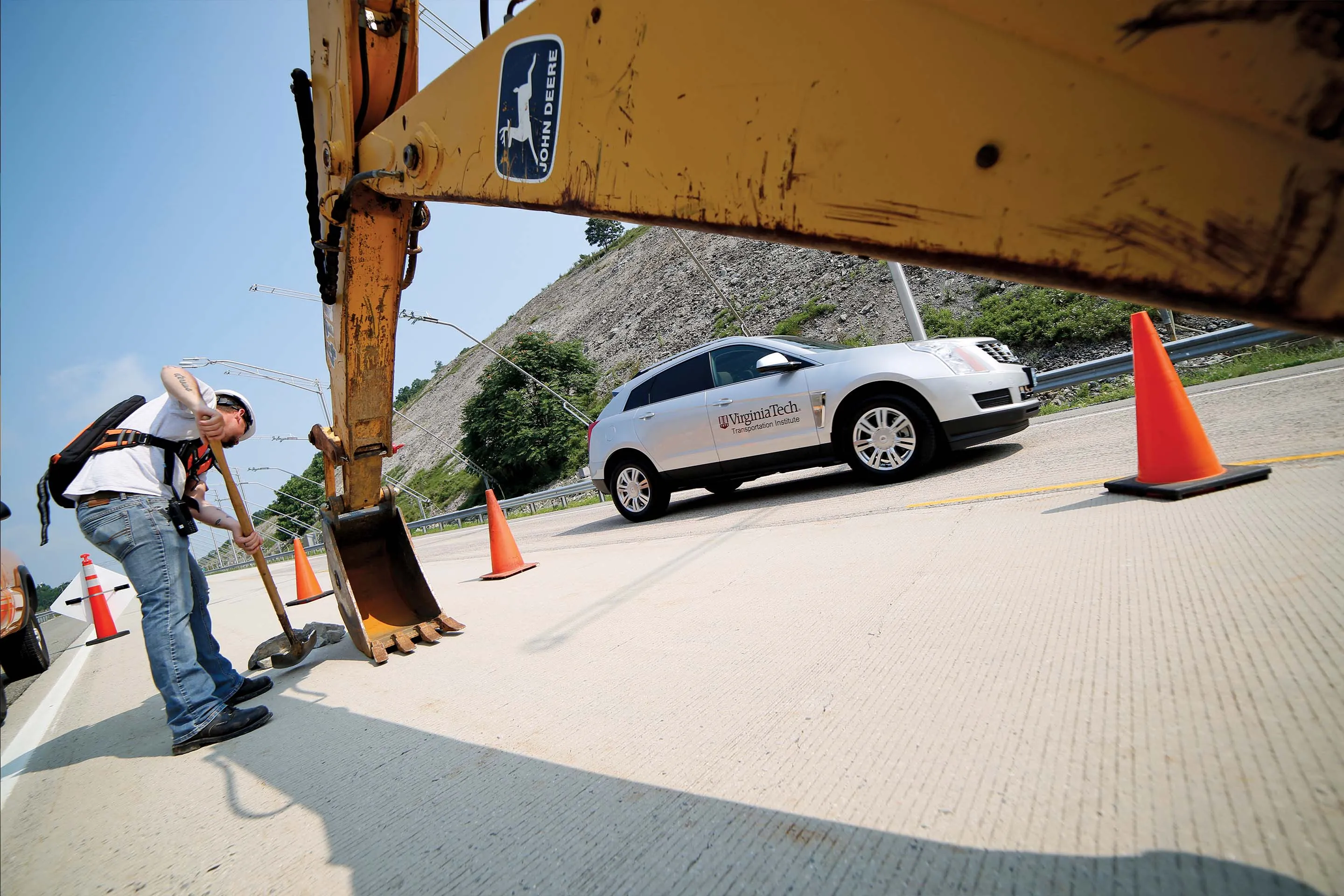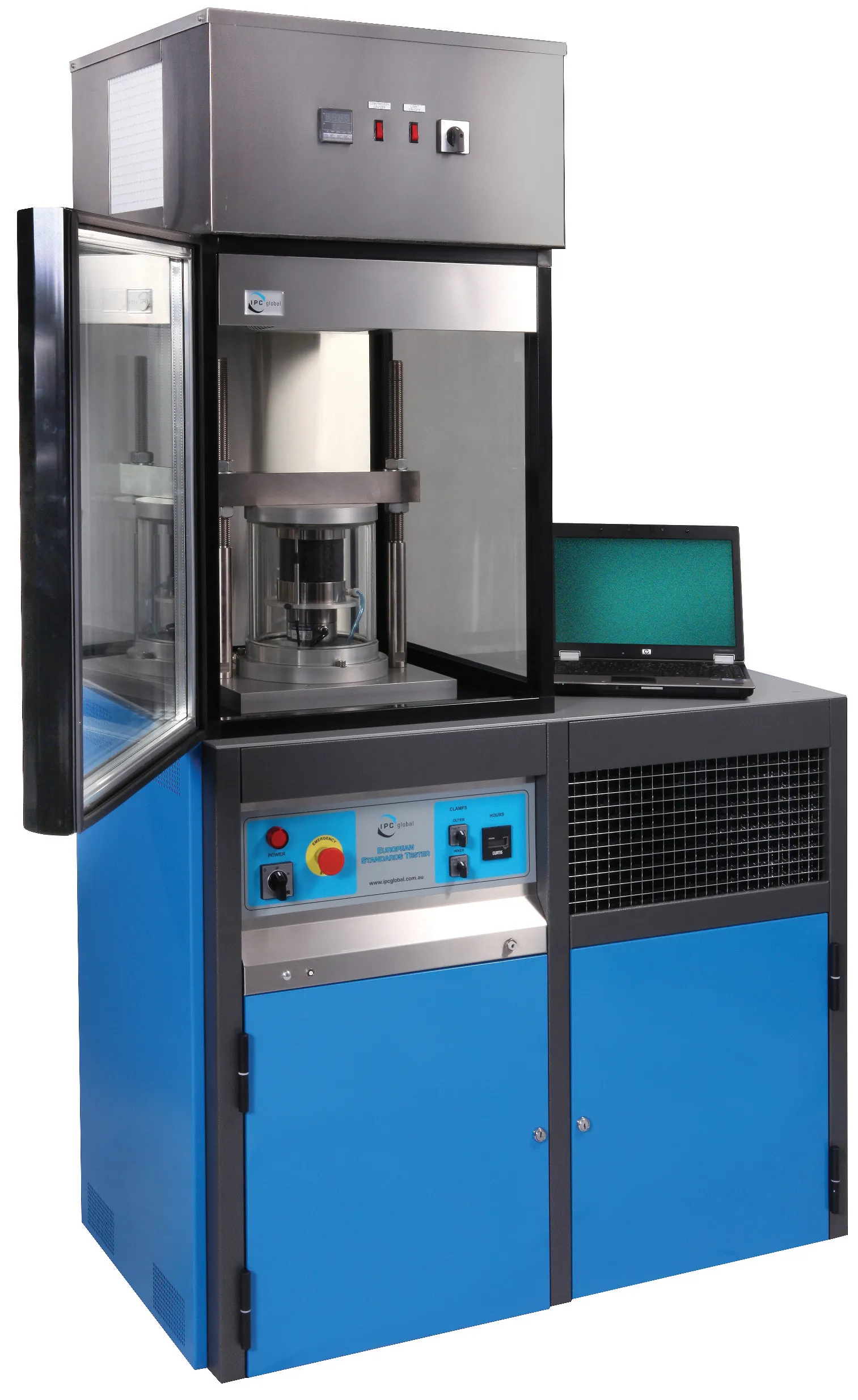Researchers at Virginia Tech university in the United States have put small radio sensors on or inside vests to allows cars to “talk” to one another, roadside infrastructure, and personal electronics such as mobile phones. If a collision is about to occur between a vehicle and a worker, the vest can warn the worker in a matter of seconds about the impending crash. Likewise, the motorist will receive a dashboard notification.The instantaneous alert is possible by short-range communication, according to a sta
December 11, 2015
Read time: 4 mins

Researchers at Virginia Tech university in the United States have put small radio sensors on or inside vests to allows cars to “talk” to one another, roadside infrastructure, and personal electronics such as mobile phones
If a collision is about to occur between a vehicle and a worker, the vest can warn the worker in a matter of seconds about the impending crash. Likewise, the motorist will receive a dashboard notification.The instantaneous alert is possible by short-range communication, according to a statement by Virginia Tech.
“Any warning we can give them is better than no warning at all,” said Kristen Hines a doctoral student with the Bradley Department of Electrical and Computer Engineering. She is helping lead the combined effort of the College of Engineering and the Virginia Tech Transportation Institute.
The InZoneAlert vest remains an ongoing project and it has gone through numerous design changes. As of 2014, the vest portion of the alert system – which incorporates GPS tracking – that evolved from the size of a backpack-sized apparatus to that of a mobile phone. Upcoming versions could shrink it to the size of a pack of gum, the university said.
The vest or similar clothing with GPS-oriented dedicated short-range radio could have wide-ranging uses. “There are a lot of roadside workers who are not necessarily on construction sites but who could benefit from such a warning,” said Tom Martin, a professor with the College of Engineering.
Martin also researches “smart” clothing – wearable items with woven-in electronic components that can provide data such as a person’s movements. “There are folks monitoring the status of interstates, officers [and] first responders. Anyone who has to be out on the interstate with passing vehicles could benefit from an individualised warning.”
Martin started the effort in 2013 with then-doctoral student Jason Forsyth, who graduated in 2015 with a doctorate in computer engineering and is on faculty at York College of Pennsylvania.
The team wants to make the InZoneAlert vest user-friendly, part of a worker’s established uniform or equipment. The alert itself also must be distinct but not jarring.
“We don’t want to add to their cognitive load,” said Martin. “We don’t want to give them false alarms. We just want to give them a few seconds ' notice to know that someone is coming toward them and then give them a chance to get out of the way.”
In early tests of the InZoneAlert system, Martin said that predictions for potential vehicle-worker conflicts met a 90% success rate.
Various alerts are being tested and must work within a loud, tough, dirty and busy construction site.
“One possible way to get over that challenge is to use other things that the worker is using,” said Hines. “Let’s take the hearing protection, for example. The auditory alert could be placed inside of the hearing protection in a work zone, which means that it can always be heard over everything. Another possible way is to include other alerting methods, such as tactile alerts that use a person’s sense of touch. This ranges from vibrations or your clothing suddenly shrinking on you [or] cuffs compressing.”
The Virginia Tech Transportation Institute will be key in testing the vest in real-world demonstrations that involve highway-speed traffic. The institute already is spearheading work on vehicle-to-vehicle to vehicle-to-infrastructure communication at the Virginia Smart Road in Blacksburg, as well as the Interstate 64 corridor near Fairfax, Virginia. Closed-course tests would occur on the Smart Road.
“We have been simulating the concept in demos done on the Smart Road along with other applications such as animal detection, collision avoidance, etc.,” said Andy Alden, a researcher with the institute.
Funding for the project has so far come from inside the College of Engineering, the Virginia Tech Transportation Institute and Virginia Tech’s Institute for Creativity, Arts, and Technology, of which Martin is associate director.
If a collision is about to occur between a vehicle and a worker, the vest can warn the worker in a matter of seconds about the impending crash. Likewise, the motorist will receive a dashboard notification.The instantaneous alert is possible by short-range communication, according to a statement by Virginia Tech.
“Any warning we can give them is better than no warning at all,” said Kristen Hines a doctoral student with the Bradley Department of Electrical and Computer Engineering. She is helping lead the combined effort of the College of Engineering and the Virginia Tech Transportation Institute.
The InZoneAlert vest remains an ongoing project and it has gone through numerous design changes. As of 2014, the vest portion of the alert system – which incorporates GPS tracking – that evolved from the size of a backpack-sized apparatus to that of a mobile phone. Upcoming versions could shrink it to the size of a pack of gum, the university said.
The vest or similar clothing with GPS-oriented dedicated short-range radio could have wide-ranging uses. “There are a lot of roadside workers who are not necessarily on construction sites but who could benefit from such a warning,” said Tom Martin, a professor with the College of Engineering.
Martin also researches “smart” clothing – wearable items with woven-in electronic components that can provide data such as a person’s movements. “There are folks monitoring the status of interstates, officers [and] first responders. Anyone who has to be out on the interstate with passing vehicles could benefit from an individualised warning.”
Martin started the effort in 2013 with then-doctoral student Jason Forsyth, who graduated in 2015 with a doctorate in computer engineering and is on faculty at York College of Pennsylvania.
The team wants to make the InZoneAlert vest user-friendly, part of a worker’s established uniform or equipment. The alert itself also must be distinct but not jarring.
“We don’t want to add to their cognitive load,” said Martin. “We don’t want to give them false alarms. We just want to give them a few seconds ' notice to know that someone is coming toward them and then give them a chance to get out of the way.”
In early tests of the InZoneAlert system, Martin said that predictions for potential vehicle-worker conflicts met a 90% success rate.
Various alerts are being tested and must work within a loud, tough, dirty and busy construction site.
“One possible way to get over that challenge is to use other things that the worker is using,” said Hines. “Let’s take the hearing protection, for example. The auditory alert could be placed inside of the hearing protection in a work zone, which means that it can always be heard over everything. Another possible way is to include other alerting methods, such as tactile alerts that use a person’s sense of touch. This ranges from vibrations or your clothing suddenly shrinking on you [or] cuffs compressing.”
The Virginia Tech Transportation Institute will be key in testing the vest in real-world demonstrations that involve highway-speed traffic. The institute already is spearheading work on vehicle-to-vehicle to vehicle-to-infrastructure communication at the Virginia Smart Road in Blacksburg, as well as the Interstate 64 corridor near Fairfax, Virginia. Closed-course tests would occur on the Smart Road.
“We have been simulating the concept in demos done on the Smart Road along with other applications such as animal detection, collision avoidance, etc.,” said Andy Alden, a researcher with the institute.
Funding for the project has so far come from inside the College of Engineering, the Virginia Tech Transportation Institute and Virginia Tech’s Institute for Creativity, Arts, and Technology, of which Martin is associate director.









